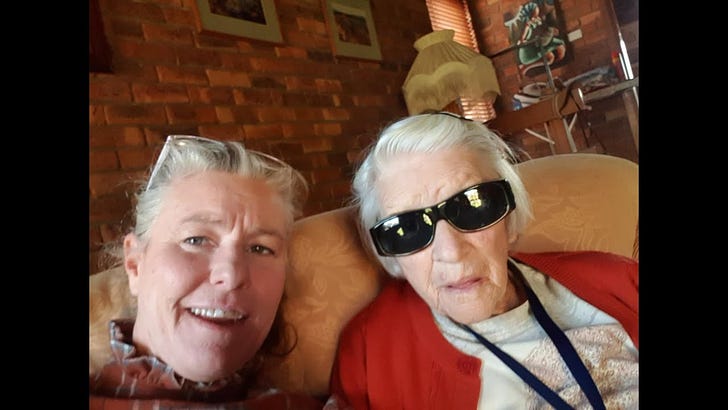Summary of the Upcoming Extraordinary Council Meeting Business Papers
Demands for Transparency and Action - By Chris Chan
The following is a summary of the upcoming motions this morning with some counter point analysis - is intentionally brief, a longer more thorough discussion may be posted after the meeting.
The extraordinary council meeting on January 24, 2025, focuses on addressing unresolved issues related to the catastrophic failure of the Snowy Monaro water reservoir, including funding for its replacement, insurance claims, and potential contamination concerns. The meeting highlights the council's legal and moral obligations to provide transparency, accountability, and effective solutions for the affected community.
1. Replacement of Water Reservoir
Proposed Motion:
Seek urgent government funding to replace the reservoir before the 2025/26 summer.
Consider using council's Water Reserve funds for the project.
CEO’s Argument:
"No available grant funding; past attempts failed."
"Proposed timeline is unrealistic and would increase costs."
"Project already included in the council’s delivery program."
Counterarguments:
Persistent Funding Efforts: The CEO’s claim ignores the possibility of new funding opportunities such as disaster relief grants, lobbying efforts, and private sector partnerships.
Project Acceleration: The notion that the timeline is unrealistic is a failure of leadership. Efficient project management and prioritization could make it feasible without excessive costs.
Lack of Transparency: Merely stating that the project is "included in the delivery program" without providing specific timelines, budget allocations, or community involvement is insufficient.
2. Settlement of Claims – Snowy Reservoir Collapse
Proposed Motion:
Ensure fair settlement of outstanding claims and provide monthly updates to the council.
CEO’s Argument:
"Only one claim remains under insurer management; council has no authority to intervene."
"Privacy laws prevent detailed reporting."
Counterarguments:
Council's Duty to Residents: The council must actively advocate for timely and fair settlements, even if direct involvement is limited.
Balancing Privacy and Transparency: Anonymized data can be shared without breaching privacy laws, ensuring the community remains informed.
Accountability: Regular updates would demonstrate the council’s commitment to resolving the matter rather than appearing passive.
3. Asbestos Inspections and Clearance Certificates
Proposed Motion:
Conduct asbestos inspections and issue clearance certificates for properties affected by the reservoir collapse.
CEO’s Argument:
"Previous assessments found no asbestos contamination."
"High cost of inspections (over $200,000)."
"Funding not identified, requiring rate increases."
Counterarguments:
Contradictory Statements: If there was no asbestos risk, why was it addressed in earlier communications? A comprehensive, independent review is warranted.
Health and Safety Priority: Ignoring potential contamination risks puts residents at undue risk.
Strategic Cost Management: The council could explore phased inspections or seek state support rather than passing costs directly to ratepayers.
4. Remediation of Contaminated Properties
Proposed Motion:
Immediately remediate contaminated properties and provide clearance certificates.
CEO’s Argument:
"Immediate remediation is not feasible due to regulatory requirements and procurement processes."
"Costs would be significant and require public notice and potential rate increases."
Counterarguments:
Urgent Action Required: Bureaucratic hurdles should not delay remediation efforts; interim solutions should be explored.
Funding Alternatives: Council should seek state or federal disaster relief funds rather than relying on rate hikes.
Public Involvement: Residents should have a say in how remediation efforts are prioritized and funded.
5. Provision of Insurance Information
Proposed Motion:
Provide detailed information on insurance policies, claims, and settlements related to the reservoir collapse.
CEO’s Argument:
"Councillors do not require this level of detail for governance purposes."
"Insurer confidentiality limits disclosure."
"Retrieving historical policies requires significant resources."
Counterarguments:
Right to Oversight: Councillors must have access to this data to perform their oversight duties effectively.
Efficient Record Management: Modern digital archives should simplify information retrieval without significant resource drain.
Public Trust: Sharing claim details fosters greater transparency and accountability.
6. Investigation into Reservoir Collapse
Proposed Motion:
Commission an independent expert investigation into the cause of the collapse and council's handling of it.
CEO’s Argument:
"No legal requirement to conduct an investigation."
"The reservoir is no longer in use, and previous regulatory reviews found no further action necessary."
"Potential costs and lack of relevance to current operations."
Counterarguments:
Learning from Failure: Conducting an investigation would ensure lessons are learned and applied to future infrastructure projects.
Community Confidence: A transparent review process would rebuild public trust and accountability.
Value Beyond Costs: The insights gained from an independent review could save the council from future costly mistakes.
7. Application of Rural Fire Services Act Section 28
Proposed Motion:
Determine if council applied this legislation to claims and identify any limitations.
CEO’s Argument:
"The Act does not apply to the reservoir failure, as the collapse was not caused by the Rural Fire Service."
"Council faced procedural, not legal, challenges."
Counterarguments:
Legal Ambiguity: A thorough legal review should be conducted to verify if provisions of the Act can be applied in any capacity.
Broader Legislative Interpretation: Alternative legal frameworks should be considered to provide relief to affected residents.
Public Assurance: Clarifying the council's position would provide transparency and help residents understand their rights.












Share this post